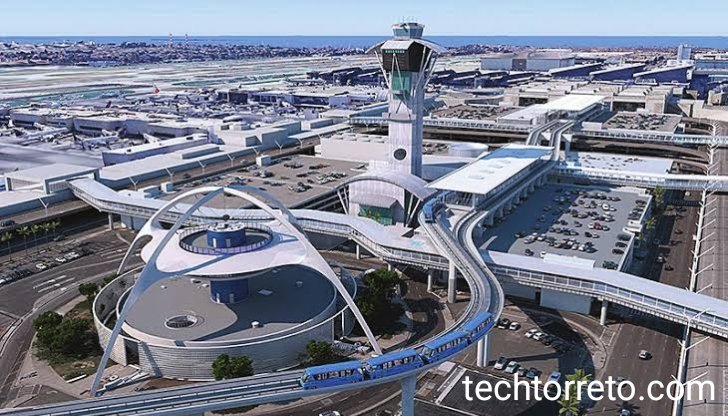Smart LA 2028: Revolutionizing Urban Life with Innovation

Los Angeles is embarking on an unprecedented transformation with the Smart LA 2028 initiative. As the city prepares to host global events like the Olympics, officials are turbocharging the integration of smart technology to upgrade transportation, energy systems, public safety, and citizen services. In this article, we dive into how Smart LA 2028 reshapes urban life for residents and visitors alike.
H2: Embracing Smart Infrastructure
Los Angeles has long struggled with traffic congestion and aging infrastructure. However, with Smart LA 2028, the city is deploying cutting-edge, sensor-based networks to tackle these issues head-on. Notably, adaptive traffic lights that respond to real-time flow data will optimize signal timing. Consequently, commute times will shorten and air quality will improve. Moreover, smart streetlights equipped with IoT sensors will deliver energy savings while enhancing public safety through intelligent illumination.
H2: Redefining Mobility and Transportation
With Smart LA 2028, mobility gets a major upgrade. Electric vehicle charging stations will be strategically installed across neighborhoods. Thus, drivers gain easy access. In addition, a city-wide bike‑share expansion, backed by AI-powered route planning, will encourage eco-friendly travel. Meanwhile, new autonomous shuttle pilots near key venues will offer first- and last‑mile solutions during major events. Plus, improved public transit apps will provide seamless real-time updates so commuters stay informed and prepared.
H2: Green Energy & Sustainability
Smart LA 2028 doesn’t stop at mobility; it embraces green energy across the board. Solar panels on public buildings and homes will feed directly into a distributed microgrid. Consequently, power outages are less likely during peak event periods. Similarly, smart energy meters will help households monitor usage and save costs. Additionally, drought-tolerant landscaping paired with IoT irrigation systems will conserve water—essential in LA’s dry climate. Therefore, sustainability becomes both smart and practical.
H2: Enhancing Public Safety & Emergency Response
Ensuring safety stands as a cornerstone of Smart LA 2028. First responders will receive high‑bandwidth communication platforms enabling instant data sharing. As a result, response times will decline. Simultaneously, AI-driven surveillance cameras with anonymized analytics will detect unusual activity without compromising privacy. Furthermore, emergency alert systems will push critical updates instantly via mobile apps and digital signs. In this way, communities stay connected and protected.
H2: Citizen‑Centric Digital Services
People form the heart of Smart LA. Through Smart LA 2028, residents will access a unified digital portal for city services: permit requests, bill payments, garbage pick‑up schedules, and more. The portal will integrate chatbots for instant support. Additionally, a civic reporting app will let users flag potholes or graffiti with just a few taps—complete with geo-tagged photos. Thus, government becomes more responsive and inclusive of citizen feedback.
H2: Data Governance & Privacy Protection
With expansion of data collection, Smart LA 2028 ensures strong privacy safeguards. Data encryption, anonymization protocols, and transparent usage policies back every technology deployment. Moreover, the city will form a citizen advisory board to oversee data ethics and compliance. Consequently, trust in urban tech grows as residents see clear protections and accountability.
H2: Economic Opportunity & Workforce Development
Smart urban development fuels new career paths. Through Smart LA 2028, the city will partner with universities and tech firms to roll out training programs in robotics, AI, and network management. Therefore, local talent gains the skills needed for tomorrow’s economy. Additionally, grants will support small businesses deploying smart solutions—further spurring innovation ecosystem growth.
H2: Preparing for the 2028 Olympic Games
LA will host the 2028 Olympics in just a few years. With Smart LA 2028, the city readies itself by enhancing stadium connectivity, crowd‑management tools, and visitor wayfinding apps. Moreover, real-time analytics will support large event logistics. Consequently, fans benefit from smoother experiences, whereas local stakeholders gain from long‑term infrastructure investments.
H2: Measuring Success and Future Scalability
How will Smart LA 2028 measure its impact? Key metrics include reduced commute times, lowered carbon emissions, and higher resident satisfaction scores. Also, pilot projects will be evaluated for cost‑benefit efficiency. Importantly, this approach ensures that successful initiatives scale city‑wide, even beyond the 2028 milestone.
Frequently Asked Questions
Q1: What is Smart LA 2028?
Smart LA 2028 is Los Angeles’s citywide initiative using cutting‑edge technology—such as IoT, AI, and smart infrastructure—to improve urban living, especially ahead of the 2028 Olympics.
Q2: How will Smart LA 2028 improve transportation?
It introduces adaptive traffic signals, more EV charging stations, bike‑share expansion, and autonomous shuttles to reduce congestion and enhance mobility.
Q3: Is my data safe under Smart LA 2028?
Yes. The initiative employs strict encryption, anonymization, and oversight by a citizen data privacy board to protect personal information.
Q4: Will Smart LA 2028 create jobs?
Definitely. It includes workforce development programs in emerging tech fields and grants for local businesses implementing smart solutions.
Q5: How does Smart LA 2028 promote sustainability?
By deploying solar microgrids, smart energy meters, drought‑smart irrigation systems, and other eco-tech to conserve resources and lower emissions.
Q6: Can Smart LA 2028 benefit me if I don’t use tech?
Absolutely. Improved infrastructure, cleaner air, and more efficient city services uplift quality of life for all residents.
Conclusion
Smart LA 2028 marks a bold leap forward for Los Angeles. By weaving smart infrastructure, sustainable energy, citizen-driven services, and economic empowerment together, it offers a model for future cities. As the countdown to 2028 continues, LA stands poised to redefine urban living—putting people, equity, and innovation at the center.